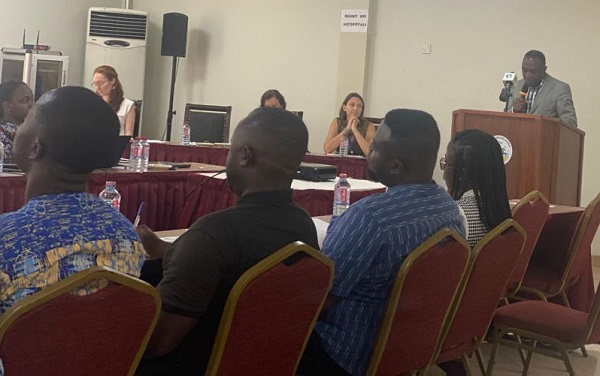
Proper data on urbanisation key to planned development – Chief Director of Local Government
The Chief Director of the Ministry of Local Government, Decentralisation and Rural Development, Amin Abdul-Rahman, has stressed the urgent need for comprehensive data on urbanisation to support effective development and service delivery in the country.
For him, improving data on existing levels of service would greatly contribute to evidence-based planning and decision-making, hence the need for the development of an urban observatory through which data collected can be used to assess gaps and identify opportunities.
"Ghana is experiencing rapid urbanisation, with 57% of the population now living in urban areas. This is projected to rise to 70% by 2050, putting immense pressure on urban infrastructure and services," Mr. Abdul-Rahman noted in a speech read on his behalf by Samuel Seth Passah, Senior Development Planning Officer, during the opening of a two-day urban observatory indicator validation workshop in Accra on October 8, 2024.
The workshop was part of the EU-Sustainable Cities Project – Phase 1.
Sustainable Cities project
The Sustainable Cities project, launched in Tamale on September 25, 2024, is a €15 million initiative funded by the European Union (EU) to promote urban planning, local accountability, and sound public finance management.
It aims to develop sustainable and inclusive municipal services such as waste management, water access, and recreational spaces in six Metropolitan, Municipal, and District Assemblies (MMDAs) in northern Ghana.
Rapid urbanisation and its challenges
Mr. Abdul-Rahman expressed concern over the rapid rate of urbanisation, warning that it places significant strain on infrastructure, resulting in limited access to essential services like water, sanitation, and waste management.
He explained that these challenges create public health risks, environmental degradation, and increased social inequalities.
He stressed that a well-designed plan is needed to address the pressures of urbanisation, including using an urban observatory to guide spatial planning, address environmental challenges, and promote transparency and citizen engagement in local governance.
EU’s Support for urban observatories
Agnès Duband, Programme Manager at the EU Delegation to Ghana, highlighted the importance of urban observatories in addressing urban challenges.
"Urban observatories serve as vital hubs for gathering and analyzing data that inform policies and improve the quality of life for millions of urban residents," she stated.
Ms. Duband added that such observatories help governments make informed decisions aligned with national goals for economic growth, social equity, and environmental sustainability.
